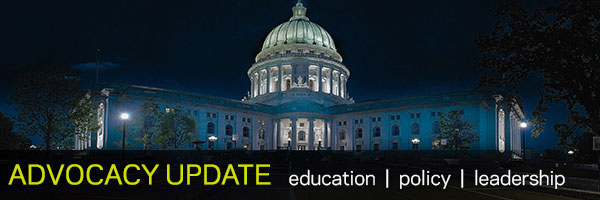The Big News

Happy New Year!
Our alcohol-free New Year’s Eve bash in Minneapolis was a successful hoot! More than 200 joined us and our partners for top-flight comedy and music, tasty non-alcoholic beverages, and celebration. We called it Resolution 2020: A Zero Proof New Year’s Eve. Big thanks to our music headliners HALEY and Lydia Liza (shown
here, L to R) and comedian Moe Yaqub.
If you weren’t there, we hope you rang in the new year and decade in similar style. Looking at the biggest celebrations around the world, L.A.’s 7th annual gathering of 50,000 in Grand Park stood out because it also was alcohol-free!
Now, we find ourselves in Dry January. The UK tradition of sobering up after the holidays has caught on worldwide and spawned similar campaigns like Dry July, Sober September, and Go Sober for October. Some say it’s part of the burgeoning sober-curious movement, which is creating stigma-free opportunities for people to experiment with sobriety and re-examine their relationship with alcohol, while simultaneously creating new social options for anyone interested in experiences outside of the drinking
culture.
We welcome that positive trend. But as Americans reflect on the past decade, the much more defining story, of course, was the opioid crisis, which fueled an unprecedented overdose epidemic that has barely begun to abate. Drug overdoses claimed a mind-boggling half-million lives in the 2010s and devastated countless others, while exposing the inadequacy of our nation’s overall approach and commitment to preventing and treating addiction, and supporting long-term recovery.
Amid the tragedy, we saw the beginning of positive change in addiction-related public attitudes, perceptions, policies, practices and systems. Hazelden Betty Ford has helped lead the way with many changes of its own. We began using opioid-addiction-treatment medications in 2012, and became a strong advocate for comprehensive care that includes medication options, psychosocial therapies and peer support. We emerged as a leading voice for breaking down barriers between the medical and Twelve Step communities.
Hazelden Betty Ford also transitioned to an insurance model so more people could access our care; evolved away from the 28-day residential standard to a more individualized approach that enables people to stay engaged longer over multiple levels of care; launched a new era of aggressive collaboration with the broader healthcare field; made the evidence-based therapy “motivational interviewing” core to a more patient-centered clinical approach; initiated a new, innovative system for capturing and acting upon patient feedback throughout the treatment experience; developed new recovery coaching options; and much more. In addition, we spoke up vigorously about the need for ethical and
quality standards in our field, and continue to support related industry reform efforts. It was a decade of big change for us, and we will likely evolve a great deal more in the 2020s, as we have consistently done since 1949.
Broader changes to the many systems that affect people with addiction are coming more slowly, but we seem to be pointed in the direction of progress. Here’s one commentator’s take on how the past decade opened the door to understanding and treating the pain of drug use rather than applying brute force to try to stop it. He’s referring to an overdue move away from the so-called War on Drugs.
Indeed, most of us want addiction prevented and treated, rather than stigmatized and criminalized. The question arises, though: Does that mean it is wise to fully legalize and commercialize more addictive substances? Or are there policies and approaches in between that promote public health better than either extreme?
In the new decade, marijuana will be a case study and likely a defining story. From our perspective, the experiment with full legalization looks troubling so far. State-level data from the National Survey on Drug Use and Health finds that marijuana use in “legal” states among youth, young adults, and the general population continued its multi-year upward trend in several categories. New data and studies come in weekly, it seems—consistently showing cause for greater public health concerns. One of our
2020 resolutions is to help ensure the facts about marijuana and the risks of expanded use get more attention.
One big concern, for example, is that marijuana vaping by teens surged in 2019, signaling that more adolescents are using the drug and consuming highly potent vape oils, according to new government data and drug-use researchers.
Federal regulators are paying attention. They shut down 44 websites advertising illicit THC vaping cartridges, part of a crackdown on suppliers amid a nationwide spate of lung injuries tied to black-market cannabis vaping products.
The outbreak of severe lung injuries may have peaked, but cases are still surfacing, and the agency is urging doctors to monitor people closely after hospitalization, due to the risk of continued vaping.
One Harvard graduate student writes, “I nearly died from vaping THC, and you could too.”
Marijuana and vaping are both among the issues coming up on the campaign trail, and recent polling released by the National Council for Behavioral Health shows strong bipartisan agreement among registered voters in New Hampshire that the federal government is not doing enough to address mental health and addiction in America.
Mental Health for US, a coalition trying to raise more awareness in the campaign, held a recent forum in New Hampshire. Watch the livestream replay.
In Washington, the White House hosted a summit of its own on efforts to deliver mental health treatment to people experiencing homelessness, violence and substance use disorder. Watch Part 1 of the event, Part 2, and the President’s remarks.
The Administration also issued its long-awaited vaping policy last week, with the FDA banning fruit, mint and dessert-flavored vaping cartridges but continuing to allow menthol- and tobacco-flavored cartridges as well as all flavored e-cigarette liquids. Many worry the guidelines don't go far enough.
Since our last update, the President also signed a $1.4 trillion spending package passed by Congress, averting a government shutdown. The package maintains funding levels for most areas relevant to our field, with modest increases in a few SAMHSA grants as well as at the CDC and at the National Institutes of Health. Most notably, the legislation gives states more flexibility in spending State Opioid Response (SOR) grant funds; specifically, they’ll now be able to use the money to also address the growing problems associated with addiction to meth, cocaine and other stimulants. Here’s a thorough overview from our friends at the National Association of State Alcohol and Drug Abuse Directors.
This week’s featured media is the latest episode in our award-winning Let’s Talk Addiction & Recovery podcast series, with host William C. Moyers talking to Kristen Schmidt, MD, about the use of trauma-informed practices in addiction treatment that account for the different ways patients experience trauma symptoms. Watch, listen or
read.
Share: Tweet | Facebook | LinkedIn
|


















